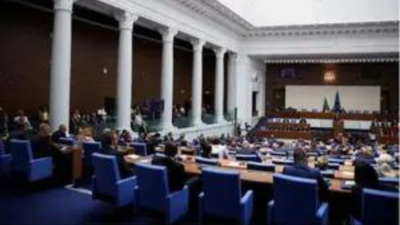SOFIA: Bulgaria’s parliament on Thursday voted to approve a conservatives-led coalition government, formed in a bid to end the EU nation’s prolonged political crisis.
In its worst political turmoil since the end of communism, the poor Balkan country has seen seven snap votes after massive anti-graft protests led three-time premier Boyko Borisov to resign in 2021.
Saif Ali Khan Health Update
Borisov’s conservative GERB party topped the most recent election in October, and on Wednesday announced it had managed to agree with the Socialists and a populist party to form a government, with the backing of a Turkish minority faction.
A total of 125 lawmakers voted in favour of the new government lineup, while 114 voted against it.
GERB secured the agreement after Borisov, 65, gave up his initial insistence to take up the premiership for a fourth time and instead designated former parliament speaker Rossen Jeliazkov as premier.
Introducing his cabinet, Jeliazkov told parliament that the different parties reached the coalition agreement “in a difficult, dynamic and tense period… putting aside our ideological and political differences.”
“The country has been in a political crisis for some time, a crisis of confidence,” the 56-year-old lawyer added, vowing to overcome it.
‘Cabinet of survival’
Jeliazkov is a close Borisov ally, who has served in various posts, including transport minister, in past GERB-led governments.
GERB on Wednesday said the new government would continue the country’s efforts to join the eurozone.
Sofia secured a much-awaited full accession into the visa-free travel Schengen zone from January 1, but still needs to ensure price stability to apply to join the eurozone from 2026.
Modernisation of the army and improving judiciary procedures are also among the new government’s priorities.
Analysts say they are doubtful whether the coalition can last.
“It will be a difficult government, in practice this is a four-party coalition, it can’t be easy but it’s better than going from one election to another,” political analyst Daniel Smilov from the Centre for Liberal Strategies told AFP.
“In the most optimistic scenario it will last a year or so to fulfil some urgent tasks like entering the country into the eurozone, securing EU resilience and recovery funds and passing this year’s budget,” he added.
In a recent Myara poll, 76 per cent of respondents said they were ready to accept any compromise among the political parties to finally have a cabinet.
Parvan Simeonov from the Myara polling agency called the new administration a “cabinet of survival, willy-nilly.”
“After four years of political crisis in Bulgaria, some government just had to be formed,” he said, adding that this does not mean that the political crisis is over.




